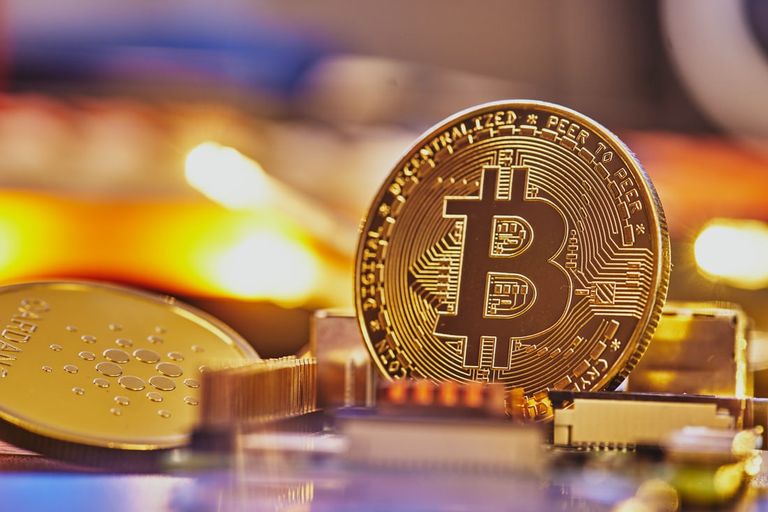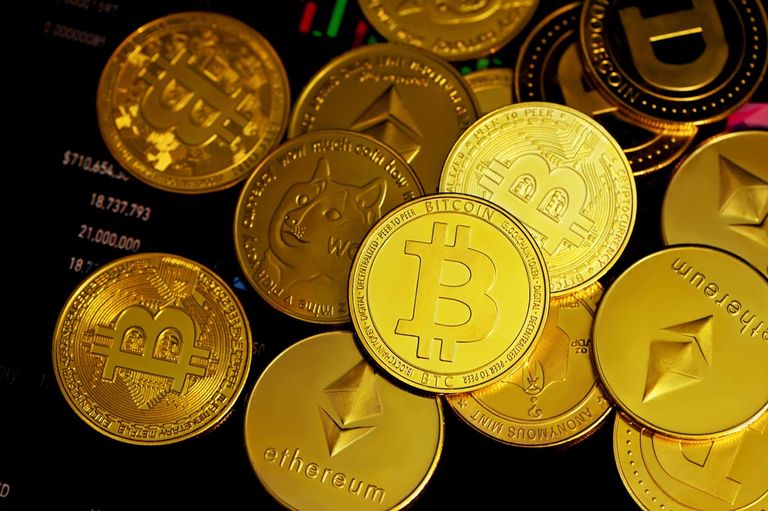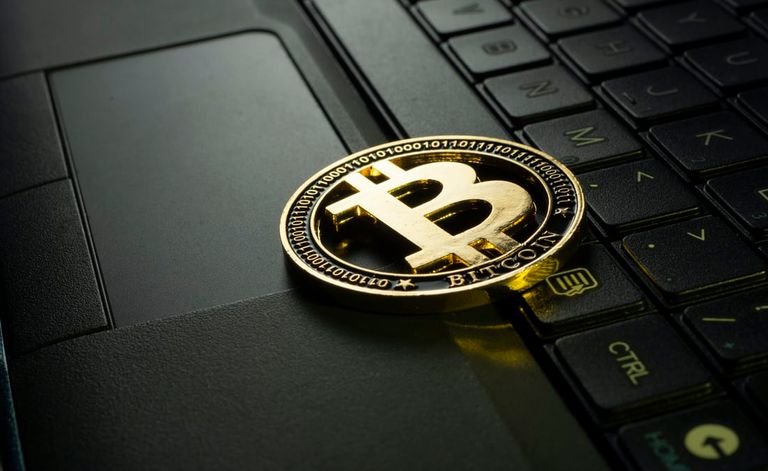Bitcoin (₿) is a decentralized digital currency that can be transferred on the peer-to-peer bitcoin network. Bitcoin transactions are verified by network nodes through cryptography and recorded in a public distributed ledger called a blockchain. The cryptocurrency was invented in 2008 by an unknown person or group of people using the name Satoshi Nakamoto. The currency began use in 2009 when its implementation was released as open-source software.

Bitcoin:
Denominations
Plural
bitcoins
Symbol
₿ (Unicode: U+20BF ₿ BITCOIN SIGN)[a]
Code
BTC,[b] XBT[c]
Precision
10−8
Subunits:
1⁄1000 millibitcoin
1⁄1000000 microbitcoin
1⁄100000000 satoshi
Development:
Original author(s):
Satoshi Nakamoto
White paper:
"Bitcoin: A Peer-to-Peer Electronic Cash System"
Implementation(s):
Bitcoin Core
Initial release:
0.1.0 / 9 January 2009 (13 years ago)
Latest release:
23.0 / 25 April 2022 (56 days ago)
Code repository:
github.com/bitcoin/bitcoin
Development status:
Active
Website:
bitcoin.org
Ledger:
Ledger start
3 January 2009 (13 years ago)
Timestamping scheme:
Proof-of-work (partial hash inversion)
Hash function:
SHA-256 (two rounds)
Issuance schedule:
Decentralized (block reward)
Initially ₿50 per block, halved every 210,000 blocks
Block reward:
₿6.25[d]
Block time:
10 minutes
Circulating supply:
₿18,925,000[e]
Supply limit
₿21,000,000
Valuation
Exchange rate:
Floating
Market cap:
US$352 billion (2022-06-18, highly volatile)
Demographics
Official user(s)
El Salvador
Central African Republic

Bitcoins are created as a reward for a process known as mining. They can be exchanged for other currencies, products, and services. Bitcoin has been criticized for its use in illegal transactions, the large amount of electricity (and thus carbon footprint) used by mining, price volatility, and thefts from exchanges. Some investors and economists have characterized it as a speculative bubble at various times.
Bitcoin has been described as an economic bubble by at least eight Nobel Memorial Prize in Economic Sciences recipients. Journalists, economists, investors, and the central bank of Estonia have voiced concerns that bitcoin is a Ponzi scheme.

The word bitcoin was defined in a white paper published on 31 October 2008. It is a compound of the words bit and coin. No uniform convention for bitcoin capitalization exists; some sources use Bitcoin, capitalized, to refer to the technology and network and bitcoin, lowercase, for the unit of account. The Wall Street Journal, The Chronicle of Higher Education, and the Oxford English Dictionary advocate the use of lowercase bitcoin in all cases.
A few local and national governments are officially using bitcoin in some capacity; El Salvador and the Central African Republic have adopted Bitcoin as legal tender, while Ukraine is accepting bitcoin donations to fund the resistance against the Russian invasion.
